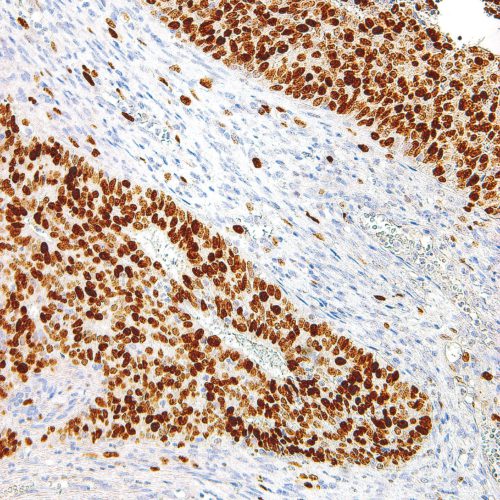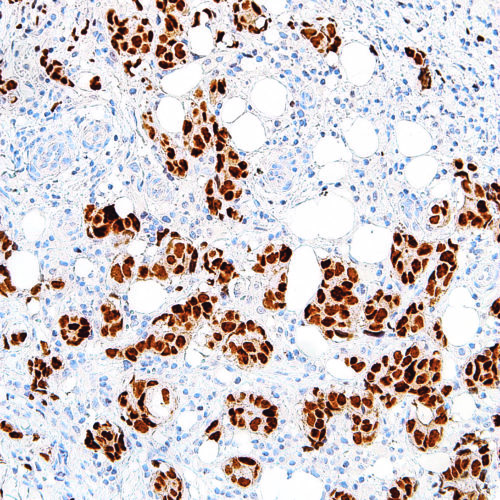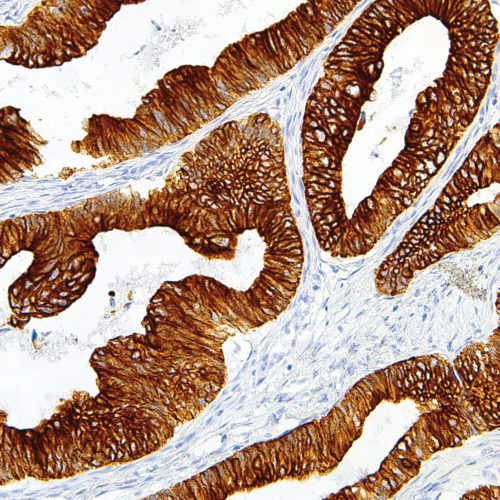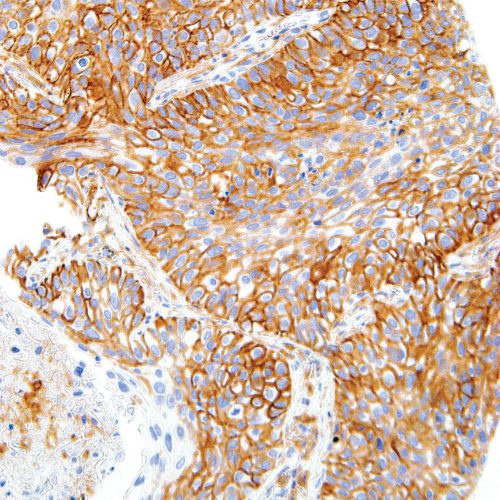High quality products to support Pathologists and Biological and Environmental Scientists
GeneAb™ Ki-67
$80.62 – $365.50Ki-67 is a nuclear, non-histone protein that is expressed only during active phases of the cell cycle (G1, S, G2 and M), but not in the resting phases (G0 and G1 early phase). Although the antigen has also been associated with ribosomal RNA transcription, it is strongly linked to cell proliferation and has thus been indicated as an effective marker in grading the proliferation rate of tumors, including those of the brain, breast, cervix, and prostate.
GeneAb™ GATA3
$129.00 – $639.62GATA3 is a transcription factor important in cell proliferation, development, and differentiation. GATA3 is mostly observed in breast and urothelial carcinomas, and rarely present in other cancers such as endometrial endometrioid adenocarcinoma. Among the breast carcinomas, GATA3 has a lower expression in luminal B subtype breast carcinoma. Studies have found GATA3 expression to be associated with ER (estrogen receptor), PR (progesterone receptor), and Her2 in breast cancer cases. Urothelial carcinomas stain positively for GATA3 in invasive or high grade tumors, therefore Anti-GATA3 is useful for carcinoma diagnosis when breast and bladder are plausible.
GeneAb™ Cytokeratin 18
$64.50 – $258.00Cytokeratin 18 (CK18) is present in simple, glandular, and transitional epithelial cells, but is absent in stratified epithelial cells. CK18 usually multimerizes with Cytokeratin 8, and Anti-Cytokeratin 18 is useful for detecting adenocarcinomas of simple and glandular epithelium origin, as well as poorly differentiated squamous carcinoma cells.
GeneAb™ CD44
$48.38 – $172.00Cluster of differentiation 44 (CD44) is a glycoprotein receptor for hyaluronic acid, which plays a fundamental role in cellular adhesion, stromal binding, migration, and cell-cell interactions. Studies have suggested that the CD44-hyaluronate interaction is central to tumor invasiveness. Positive staining with Anti-CD44 is implicated in a multitude of different cancer types, including breast, prostatic, renal cell, colonic, hepatocellular, and genitourinary carcinomas, as well as Non-Hodgkin’s Lymphoma, metastatic melanoma, gastric cancer, and some soft tissue tumors. It has also been demonstrated that there is a positive correlation between tumor progression and increased expression of CD44v, a high molecular weight CD44 isoform that has been described in epithelial cells. Given the expression of CD44 in a wide range of cancers, the most practical application of CD44 immunostaining is its use in discriminating between urothelial transitional cell carcinoma in situ from non-neoplastic changes in the urothelium.



